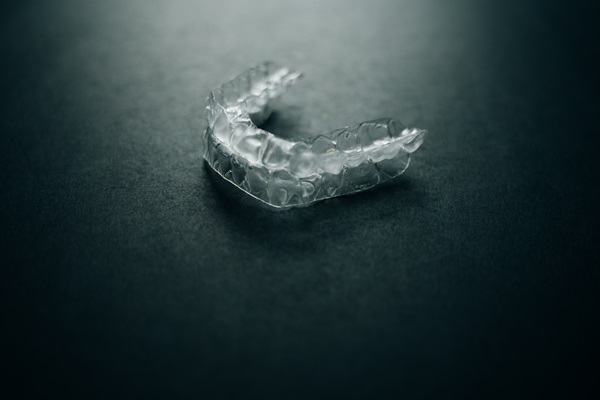The Purpose of Oral Reconstruction
The mouth is one of the most complex systems in the human body. There are hard tissues like the teeth and jaw, and soft tissues like the gums and tongue. All of the many parts that make up the mouth have to be working together like a well-oiled machine, or oral health suffers. A person that has many different oral health problems that affect most or all of the tissues of the mouth is a good candidate for oral reconstruction.
Why do people get oral reconstructive surgery?
Oral reconstructive surgery is done to repair a variety of problems. These include damaged teeth, faulty bites, and take care of gum and jaw bone damage. Other reasons for oral reconstructive surgery are replacing missing teeth, repairing damaged teeth, and replacing old dental work. A full mouth restoration can include many different procedures.
Neuromuscular dentistry/TMJ treatment
Temporomandibular joints (TMJ) and the bite problems can be corrected with neuromuscular dentistry. TMJ joints connect the lower jaw to the skull. Neuromuscular dentistry corrects jaw misalignment and how the upper and lower teeth work together.
Orthodontics
Orthodontics correct problems with misaligned teeth and improper bite. Orthodontists use metal braces, expanders, and retainers to get the teeth and jaw into the proper position. They work on reconstruction the whole face and not just the teeth.
Oral surgery
Oral surgeons repair conditions such as impacted teeth, jaw-related problems, and facial trauma. They also will do root canals and perform cosmetic and reconstructive surgery. Oral surgery treats pathological conditions like oral, head and neck cancers, and severe infections.
Periodontal treatments
Your oral reconstructive surgery may include periodontal treatments. Periodontists replace missing teeth with implants, perform gum graft surgery, and do regenerative procedures. Periodontal treatments may also include pocket reduction surgery and dental crown lengthening.
Bruxism treatments
Bruxism is the technical term for teeth grinding. There are solutions that resolve this issue, and the symptoms that go with it. Your dentist can correct the wear on your teeth with splints and mouth guards. A dental correction may be required to reshape tooth surfaces when bruxism interferes with chewing.
Restorative dental treatments
Restorative dental treatments include a wide range of procedures. Crowns, bridges, and even tooth whitening are considered restorative treatments. Your dentist may also give you inlays, veneers, or root treatments as part of your treatment.
How to prepare for oral reconstructive surgery?
Preparing for oral reconstruction surgery takes many steps, and the process takes time. The steps include things that happen before, during, and after the surgery. Familiarize yourself with every step of the oral reconstruction process before you begin. This ensures the procedure goes as smoothly as possible.
Oral reconstruction exam
The first step of the journey is the oral reconstructive exam and diagnosis. During the exam, your dentist will examine your head, neck, and mouth. Digital photographs of your face and smile may be taken to compare before and after pictures. Dentists may also use a tiny camera to take photos of the inside of the mouth. They will examine all the soft tissues in the mouth, probe your gums, and examine every tooth in your mouth. X-rays will be taken to view underlying structures.
Diagnosis and discussion
The next step is a consultation with your doctor. During this visit, you can discuss any questions or concerns you have. Your doctor will go over any physical or mental issues that may make you uncomfortable sitting in a dental chair for extended periods of time. You will also discuss the goals of the treatment, and how long recovery may take. During this visit, your dentist will decide on a treatment plan and all of your options for treatment.
Bringing in oral reconstruction specialists
Your dentist may decide to bring specialists into your case. There may be specialists at your own dentist’s office, or you may need to travel to another location. The American Dental Association acknowledges nine types of specialists. These are Orthodontists, Endodontists, Periodontists, Prosthodontist, Pedodontist, Oral and Maxillofacial Surgeons, Oral and Maxillofacial Radiologists, Oral and Maxillofacial Pathologist, and Dental Public Health. You may see just one, or a combination of specialists as part of your treatment plan.
General surgery preparation
When going in for any surgery, it’s important to look after your general oral health. Drink lots of water and ensure that you are getting enough sleep. Obey your doctor’s orders about what to eat and drink in the 24 hours before surgery. Also, it is a good idea to eat healthy foods. This ensures you have the right nutrition to fight off infection. Ask your doctor if you are healthy enough for
anesthesia.Oral reconstruction or a full mouth restoration is necessary for a variety of reasons. These include repairing damaged teeth, addressing TMJ issues, and repairing jaw alignment. Patients go through a process with oral reconstruction that requires many steps. The result is an improved smile that increases confidence and quality of life.

